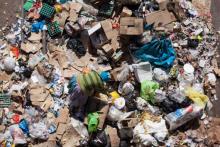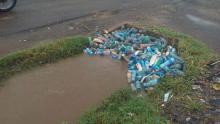GBM Blog
We must decide the future for plastic
Written by Teresa Maina, Senior Programme Officer - Gender, Livelihood and Advocacy
Nature is unforgiving!

Behind each and every piece of littered plastic debris is a human face. At a critical decision point, someone, somewhere, mishandled it, either thoughtlessly or deliberately. Environmentalists have long denounced plastic as a long-lasting pollutant that does not fully break down, in other terms, not biodegradable.
Before nature hits harder, we must do things differently, find solutions. We must stop focusing on not only the jobs that will be lost if polythene and plastics are banned, but rather think of the effects that are direr. Sustained social mobilization could be the alternative to curb this menace. So how do we solve it?
Sustained Social Mobilization
The reality is that the only sound strategies to stop plastic pollution are ones that prevent it in the first place. Effective social mobilization strategy must include clear communication for all beneficiaries to realise the actual environmental and health problems caused by plastics. This information will then empower all beneficiaries to ‘decide to refuse use of plastics and to use alternatives and advocate for legislation against flimsy plastics.
Social mobilization in this case will involve reaching out to individuals, groups, civil society organization , government and other strategic partners; empowering them with information about the problem and leading them towards making an informed social development decision and hence action. Including 3Rs (Reuse, recycle & Reduce.The good news is that this approach is inexpensive to implement and can be adopted, with the only costs being sustaining and enforcement.
There are many ways to fight plastic pollution: through public education, art, documentaries, demonstrations, lobbying our leaders, and through legal policy as part of social mobilization.
However, the answer is not solely about campaigns and mobilization, but it starts within yourself at your own backyard.
Recognizing the opportunity, defining a clear message and reacting; these three keys steps will lead to the success of environmental campaigns against plastic pollution in our country. We must move from Assessment to Action.
Recycled plastic put to good use |


